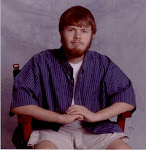Autistic behavior includes:
- Abnormal socialization (lack of need for interacting with others)
- Abnormal speech patterns (echolalia)
- Absent or poorly-developed verbal and nonverbal communication skills (inability to clearly express thoughts and needs)
- Social withdrawal (need to hide behind furniture, play alone, avoid groups)
- Inability to make friends
- Repetitive body movements (spinning, hand-flapping)
- Ritualistic behavior (lining up toys)
- Lack of eye contact (eyes cast downward or off to the side)
The list is found on several websites and is basically what physicians and therapist use to help them in making the diagnosis of autism. The reasons for these behaviors are never provided, leaving a parent feeling helpless and frustrated as to why their child displays these behaviors. Regardless of what disease or syndrome a person has, treatment must focus on the “why” the symptoms present themselves. There is quite a bit of research going on trying to find the basis for autism, but as yet, no biological reason “why?” has been found. Unfortunately, until someone actually discerns why the child becomes autistic, no one treatment can focus on reversing or lessening the behaviors for all autistic individuals. The list of treatment options keeps growing – it includes some that are known to help, others that are snake-oil. Until we know “why?” no single treatment will help all autistic children. The only treatment known to lessen autistic behavior has been early intervention. Simply put, the sooner you know, the sooner you can begin to help the child and the parents.
So, what is it like to have autism?
Let’s say you wake up one morning and your surroundings seem unfamiliar. The noise level has increased dramatically and your skin has become very sensitive to touch. The lights in your room seem too bright but there is no way to turn them off. Someone comes in and their face is recognizable – but you are not quite sure if they are going to harm you or help you because you can’t read the emotion on their face. You are afraid. What happened? Memories of the days gone by are just out of reach, as if a veil has been placed in front of them. You want to ask someone to help you, explain to you what is going on, but the words don’t come – you can’t quite get a grasp on language and trying to listen to others speaking is constantly covered by other sounds in the room. It all sounds garbled. You get through this strange day, hoping the next one to be better, but when you awake the next morning, you are again assaulted by noise, bright light, skin sensitivity, and unsure of the people around you. You live in fear – day after day, unsure of your surroundings, alone and helpless.
How would you react to this sequence of events? Would you become socially withdrawn? Would you lack socialization skills? If you can’t discern if those around you are there to help you and love you, then chances are you would keep your distance. Faces are confusing – would you look in their eyes? Would this situation affect your speech development?
When you are with an autistic child, think about their daily challenges, their need and desire to be with you, but they are frustrated as to how to do so. Think about how they see you. How should you interact? Very simply – be gently, very gentle. Smile. Keep your voice soft. Go to them, get on their level (kneel), touch softly and frequently. Praise them for each and every small thing they can do – give them reason to trust you. When they flap their hands realize they are trying to control and coordinate body movements – it’s not all bad. Enter their world gently and deliberately. Give hugs – lots of them to lessen their fears. Realize that these small children are facing something monumental and they most likely feel alone. Each step forward from the confusing experiences of their autistic world into your world is an act of bravery. Each and every step is a show of trust.
There are many neurological disorders out there and most of these affect adults. They too are scared and require support to handle the challenges of their changing world. Autism affects our youngest people – little children who have no idea how to react or why their world has become so confusing. So be gentle.
I have watched Matt take one simple step at a time out of his autistic world. I have witnessed his desire to take a new step every day and conscious effort to make it happen. Every step is an act of bravery - I am constantly in awe.
Matt is walking the road less traveled and I feel privileged to be his compass.


No comments:
Post a Comment